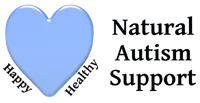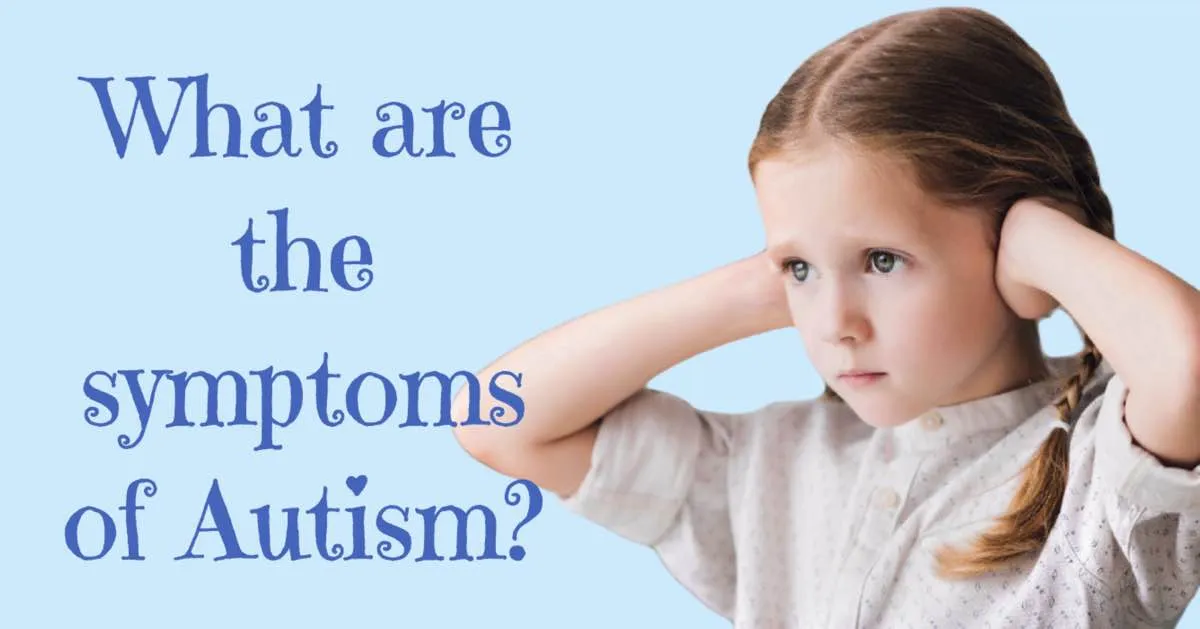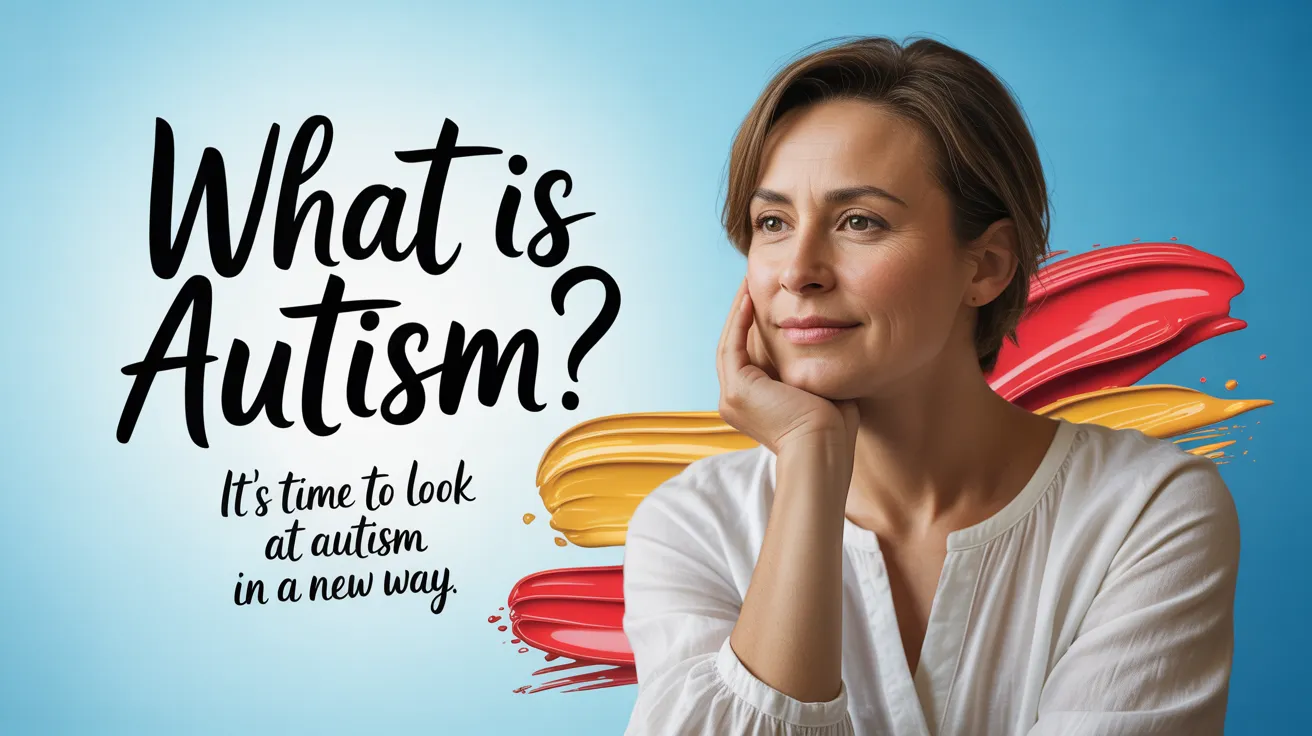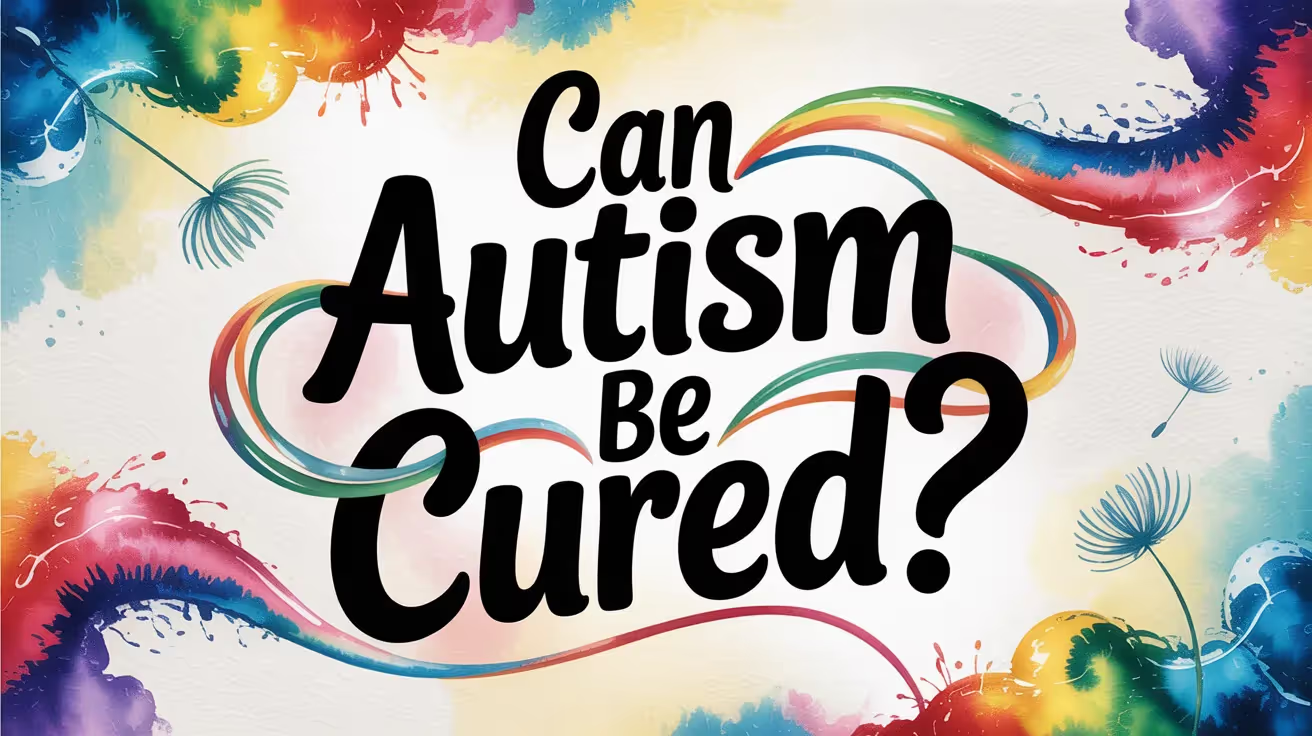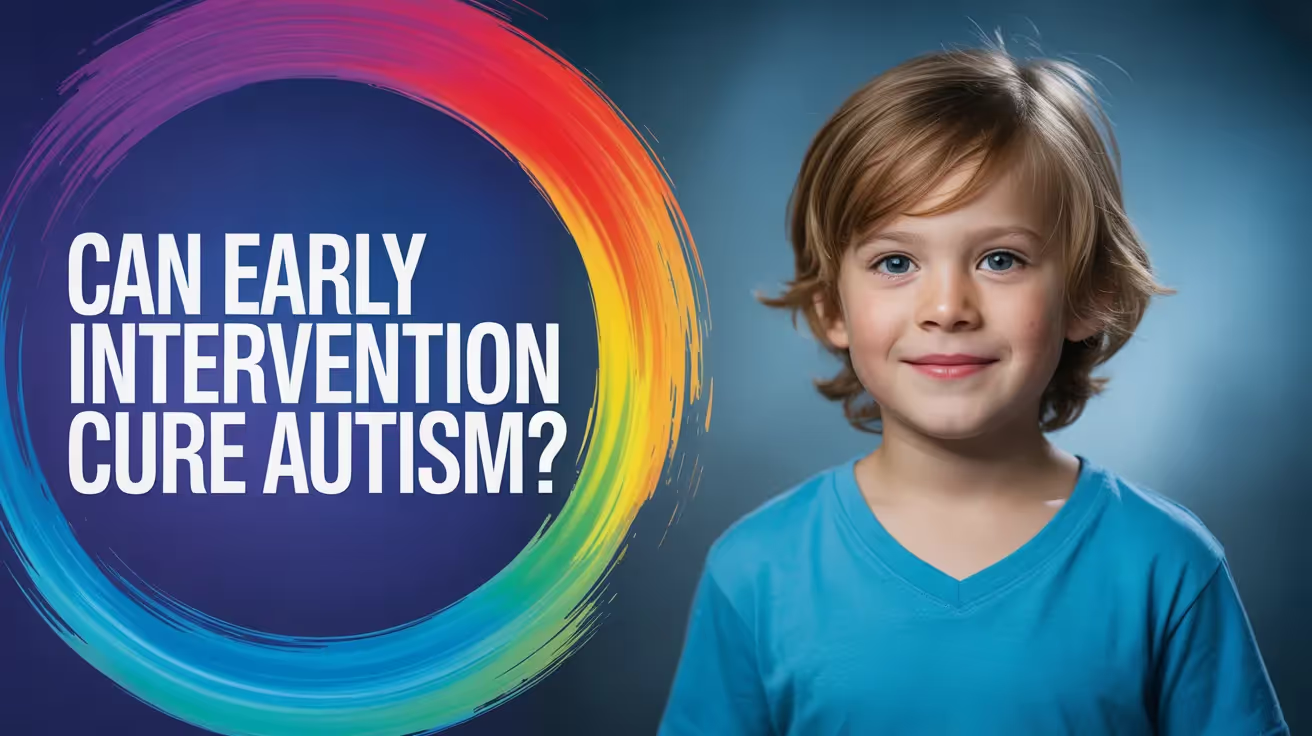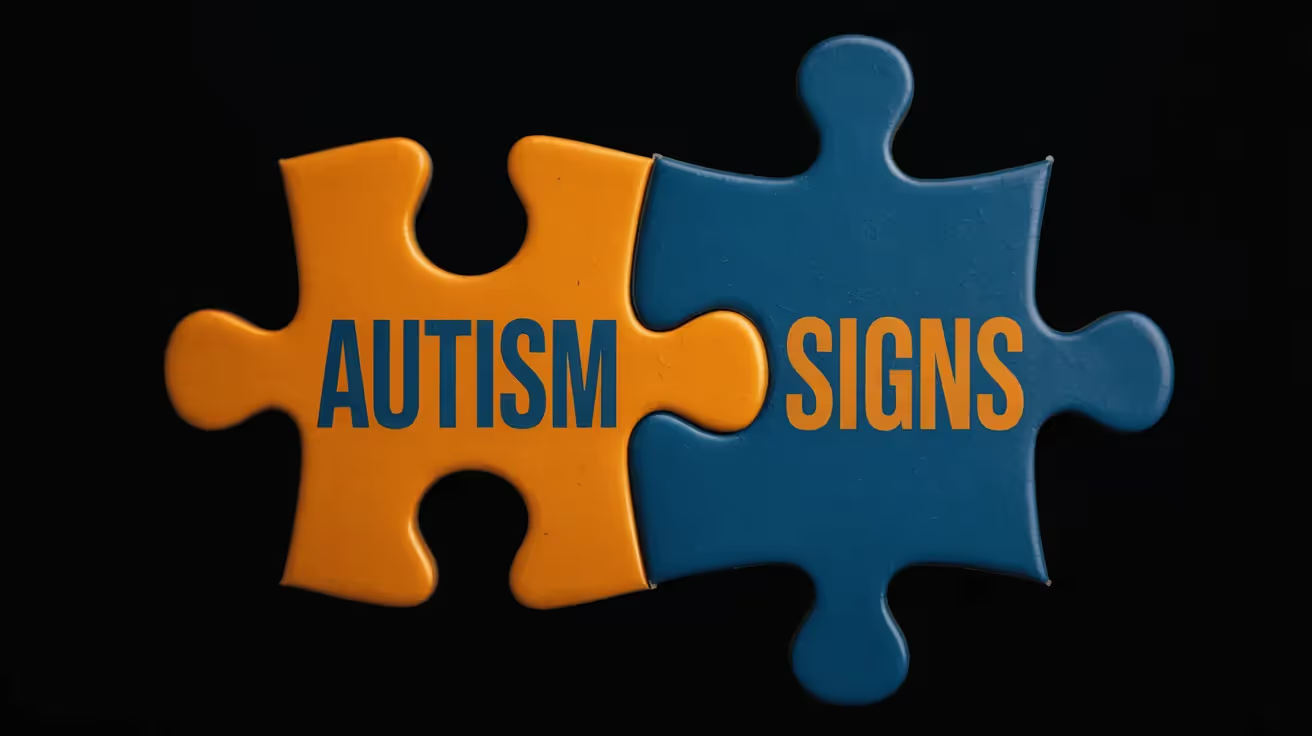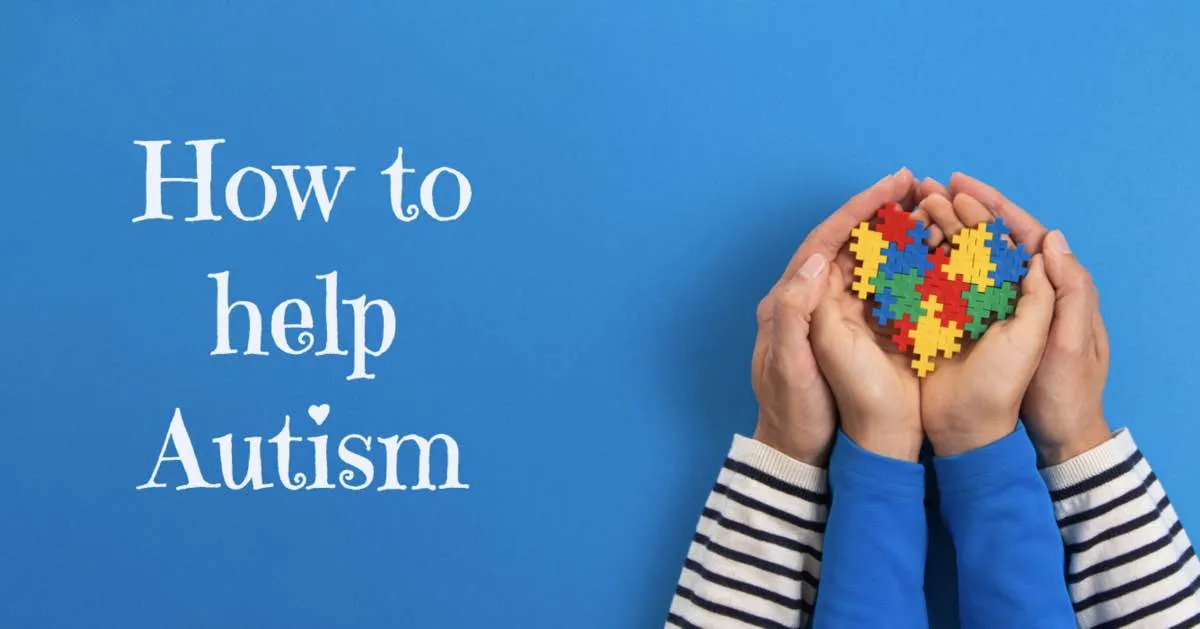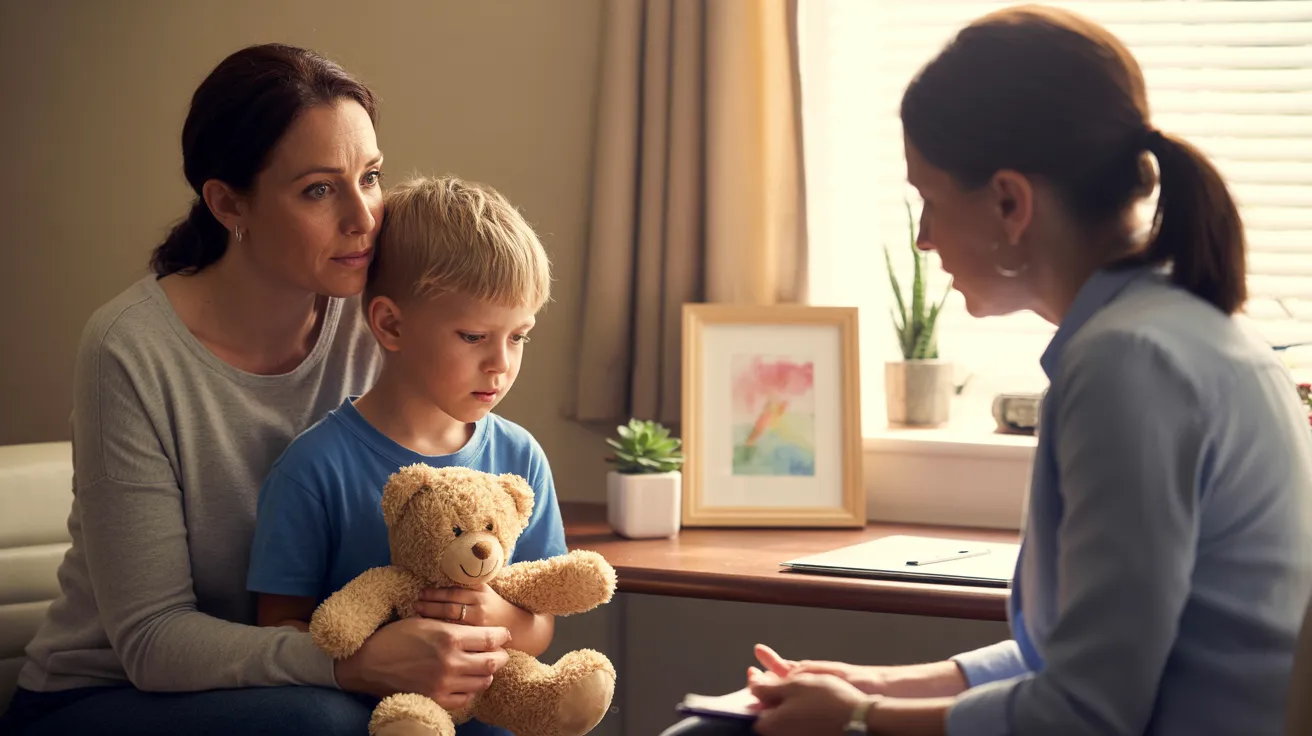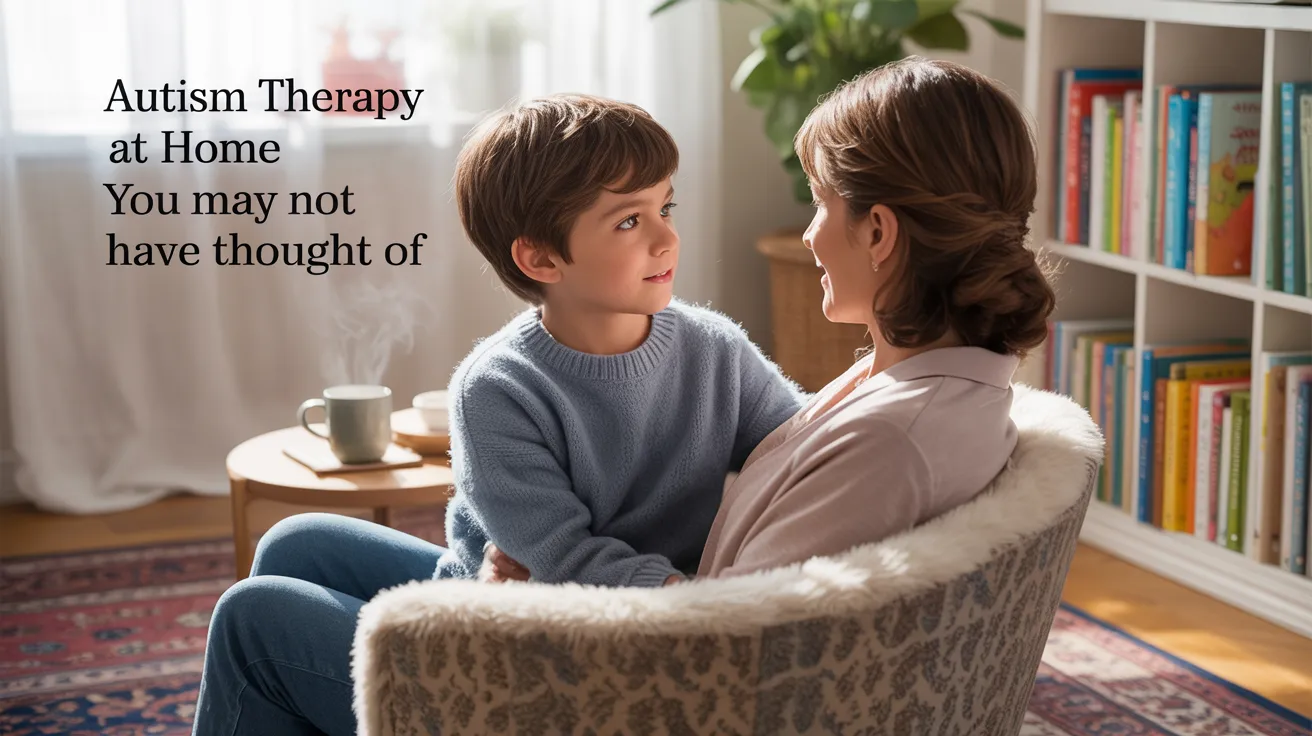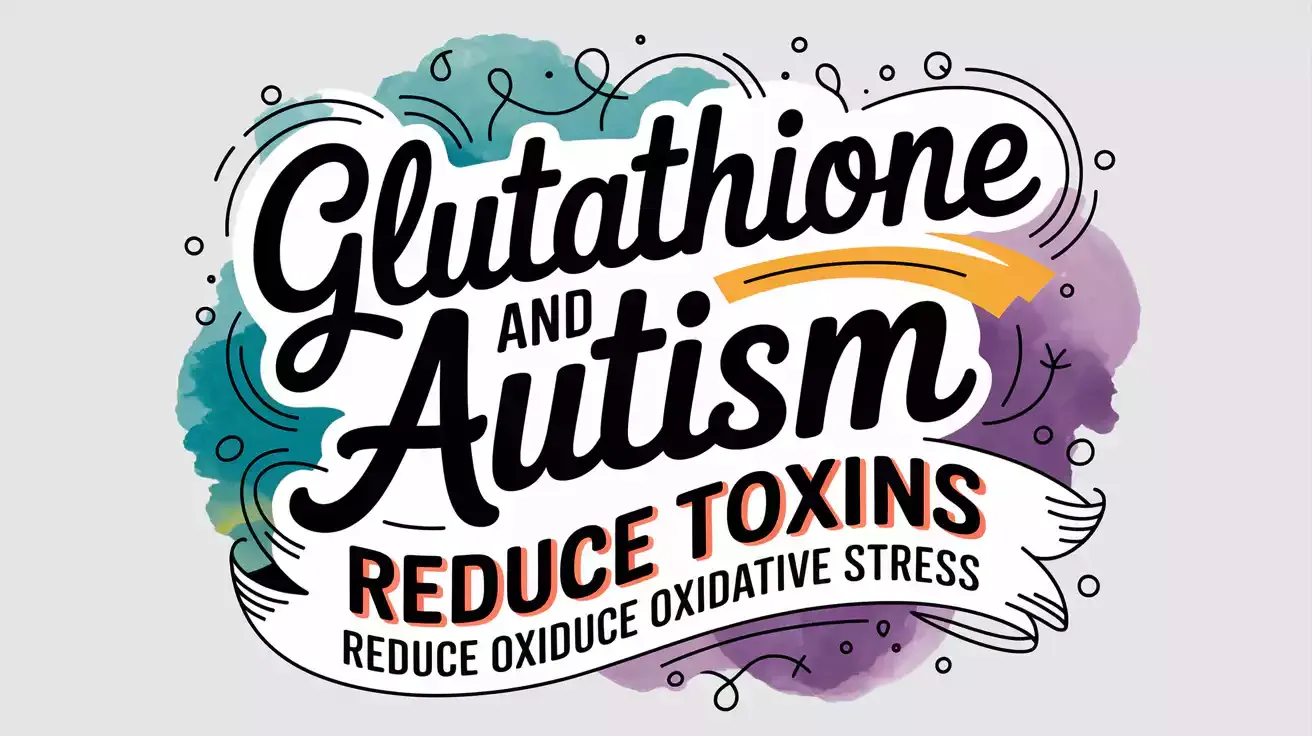Parents and doctors may notice the onset of symptoms of autism spectrum disorder in children before they are three years old. Autism signs are lack of eye contact, inappropriate responses, strong reactions to routine changes, lack of empathy, impulse control issues, obsessive-compulsive behaviours, avoiding touch, regression, and difficulty concentrating. If any of these symptoms appear in your child, you should seek help as soon as possible.
What Is Autism?
People with autism have different strengths and weaknesses in everyday life. While children with autism may lag behind their peers in certain areas of social development, they may also exhibit other difficulties. Lagging development of social skills is a common observation during the development of a child with autism and is seen in autistic adults.
People with autism may seem to have very limited imagination in the way we expect children to express imagination. The care needed for someone with a disorder can vary from daily help to independent living. In addition to the various physical and mental issues that are associated with autism, these people may exhibit extreme interests and repetitive behaviours.
As with other mental disorders, autism is diagnosed by collecting information about the behaviours and traits of a person. An autism assessment will take into account language skills, nonverbal communication skills such as body language and expression through face and tone of voice.
For more information when exploring 'what is autism', with a more open-minded look, be sure to read the post titled ' What is Autism?'
What Is Autistic Behaviour?
Children with autism spectrum disorder tend to have restricted interests and repetitive behaviours. These behaviours appear in many combinations and can be mild or severe. Scientists divide repetitive behaviours into two groups: lower-order and higher-order. Lower-order includes things like fidgeting, vocalising, and hand flapping. Higher-order includes routines and strong interests.
There are other behaviours that are common in children with autism, which can introduce challenges for parents. Autistic children may not behave in socially acceptable ways in public. Parents facing challenges in managing their children's behaviours can find it hard to carry out simple tasks that most parents find easy, like grocery shopping or visiting friends. Often autistic children will make loud outbursts in public that others find uncomfortable. As a result, members of the public may shame or ridicule the parents and the child, causing embarrassment, particularly for parents.
It's a good idea to explore autism screening and testing options if you are concerned about your child.
What Are The Symptoms Of Autism?
Autism is a spectrum with a large number of symptoms. Autism symptoms include reduced social, emotional, sensory, and learning symptoms. Don't ignore health-related symptoms such as gut issues and inflammation.
Some common symptoms of autism include:
Inability to comfortably engage in eye contact.
Visual and auditory sensory challenges.
Difficulty with speech.
Impaired motor skills.
Struggling to comprehend language.
Poor social skills.
It's important to not ignore the symptoms of autism that are often ignored. These symptoms are health-related symptoms. These include:
Gut health issues such as constipation and diarrhoea.
Overload of toxins.
Increased inflammation, including brain inflammation.
Measurable reduced nutrients, such as glutathione.
What Are Some Common Early Signs Of Autism?
It's important to be aware of the early signs of autism. We go into more detail in our blog post dedicated to the early signs of autism, however, here is a high-level summary.
The first sign of autism can be difficult to notice, especially since each child displays the symptoms differently. Some children may exhibit signs before they are twelve months of age, while others may not show any symptoms at all. Although the onset of the symptoms can begin at any age, most children with autism will exhibit signs between the ages of two and three years. However, it is vital to seek a professional evaluation as early as possible to prevent any further complications.
When considering the early signs of autism, keeping in mind the child may be quite young, here are some common signs to look out for:
The child is not interested in playing with toys or cuddling.
The child is difficult to interact with, even in the comfort of their home.
Babies with autism are often unresponsive to eye contact, loud noises, and gestures.
They are not able to respond to familiar objects, faces, or sounds.
They also may have limited interest in pointing or expressing feelings.
They may have delayed speech.
There are other symptoms that go along with autism, which are not necessarily autism symptoms. These include inflammation and gut issues such as diarrhoea or constipation. Don't ignore symptoms such as these. They don't need to be used in the diagnosis of autism, but they need to be addressed to help your child overcome their challenges.
It's important to not the above list is some of the red-flags for autism, but what about the yellow-flags? If you miss the yellow-flags, you get more red-flags. Gut issues are an obvious yellow-flag. However, there are other yellow-flags such as persistent toe walking. Persistent toe walking can be a sign of non-integrated primitive reflexes. Thankfully, a good primitive reflex practitioner can resolve this delay and significantly help improve your child's development. If this is a concern, I have gone into more details in this post.
We have a few posts talking about gut health. Explore our blog to read more about gut health. You may want to start with this post talking about probiotics and autism. Often parents waste a lot of money on probiotics, thinking that they will magically fix their child's gut issues. Before you spend money on probiotics, read autism and probiotics post, and consider healing their gut with food.
Can Symptoms Of Autism Be Something Else?
It's wise to keep in mind other conditions that may mimic the symptoms of autism. Developmental milestones may be missed for reasons that are not related to ASD.
Sometimes we look to label a child with autism so that access to support is more readily available. It's crucial to accurately diagnose a child's condition before choosing the appropriate treatment. This ensures that the child's needs are properly addressed. As a parent, staying informed and asking questions can help professionals diagnose your child accurately and provide the best care.
Sensory issues are often misdiagnosed as autism because of some similarity in behaviours. Many kids with sensory issues will experience some of the same behaviours as those with autism. People with autism may have sensory issues. However, I don't think that sensory issues should always be considered a form of autism. Some kids with sensory issues may have difficulty processing information or understanding social cues. Other kids with sensory issues will have difficulties with language or motor skills.
One reason that it's important to explore treatments for sensory issues prior to an autism diagnosis is that a child may overcome many difficulties once the sensory issues are addressed.
Anxiety is another condition that can look similar to autism. Anxiety is characterised by extreme fearfulness and avoidance behaviour. Kids with anxiety often avoid situations that make them feel anxious. Your child may also be very sensitive to noise, lights, smells and textures. Anxious kids may also have trouble sleeping or eating.
Selective mutism may also be associated with heightened anxiety, which may mimic some of the communication difficulties that can be a sign of autism.
Kids with anxiety may also exhibit repetitive behaviours such as rocking back and forth, hand flapping or spinning. Some kids with anxiety may also have sensory issues.
The most obvious difference between autism and anxiety is that kids with anxiety usually understand what others mean when they talk to them. Kids with anxiety do not have problems communicating their thoughts and feelings. If your child has signs of anxiety, it would be wise to seek the help of a psychologist that specialises in children's anxiety.
For a more comprehensive and broader view of autism symptoms, including the ones that most have, but experts ignore, visit the post - Understanding ASD - Autism Symptoms: A Holistic Perspective.
Treatments For Autism Spectrum Disorder
It is important to follow the normal diagnosis and treatment path in your country. I recommend that you also keep an open mind to explore more options and cast a wider net. There are a wide range of things you can do to improve the effectiveness of early intervention and other autism treatments. Just as environmental factors can contribute to the symptoms of autism, understanding those factors can improve the results of early interventions.
Unfortunately, common treatments for ASD rarely consider strategies for enhancing the health of the body and the brain. When we as parents understand the fact that the treatments focus on things other than promoting health, we get a surge of optimism. It means that grim picture being painted by the experts, may not need to be true for our children. Healthy lifestyle changes can greatly improve children's health, even when traditional treatments are not very effective. Many parents have noticed positive results with this approach. This gives us hope that there are alternative solutions available to us.
You may want to explore the post titled - Autism therapy at home. This post covers a range of therapy options that you can support your child with at home, including a number of options that are often missed by your regular therapists.
This doesn't mean that we ignore the experts in the field of autism, it just means that we have more options available for us to add to the treatment plan.
For more information, please read our blog post about healing autism naturally. In this post, you'll find some good ideas, particularly dietary ideas that many families have used to help their children with autism.
Please consider seeing a local integrative health practitioner, which is a doctor that treats more complex chronic conditions by improving health with a scientific approach.
Also consider getting an autism life coach. Parenting a child on the spectrum is difficult, and having a coach will help you a lot. More importantly, a coach will help your child. A coach, who is normally a parent of a child with autism, can see things that you miss. They can guide you in the right direction, avoiding pitfalls and strategies that are a waste of time and money. Find out more about options for autism coaching and our private community.
Frequently Asked Questions
What exactly is autism, and why is it so important for parents to understand its signs early on?
Autism Spectrum Disorder (ASD) is a neurodevelopmental condition that affects how a person communicates, interacts, learns, and behaves. It's called a 'spectrum' because it presents differently in each individual; some may have mild challenges, while others face more significant ones.
For parents, understanding the signs of autism early is incredibly important for several reasons:
- Early Intervention: The younger a child is when they receive support, the more effective interventions tend to be. Early intervention can significantly improve a child's development, social skills, and overall quality of life.
- Tailored Support: Identifying signs early allows professionals to create individualized support plans that address your child's specific needs, helping them reach their full potential.
- Reduced Stress: For families, understanding what's happening can reduce uncertainty and stress, providing a clearer path forward for support and resources.
- Better Outcomes: Research consistently shows that early diagnosis and intervention lead to better long-term outcomes in areas like language development, social skills, and adaptive behavior.
What are some of the earliest signs of autism a parent might notice in a baby or toddler?
While every child develops at their own pace, there are some early developmental milestones and behaviors that parents can observe. It's important to remember that noticing one or two of these signs doesn't automatically mean a child has autism, but it does warrant a conversation with your pediatrician. Some common early signs include:
- Limited Eye Contact: A baby or toddler might not make much eye contact, or avoid it altogether.
- Lack of Social Smiling or Babbling: Not smiling back when smiled at, or not babbling by 12 months.
- Delayed or No Back-and-Forth Play: Not engaging in 'peek-a-boo' or not responding to their name by 9-12 months.
- Limited Gestures: Not pointing to objects, waving 'bye-bye', or showing objects to others by 12 months.
- Repetitive Behaviors: Engaging in repetitive movements like hand flapping, body rocking, or spinning objects.
- Unusual Reactions to Sensory Input: Being unusually sensitive or insensitive to sounds, textures, lights, or smells.
- Regression: Losing previously acquired speech, social, or motor skills.
- Preference for Solitude: Preferring to play alone rather than with others.
If you notice several of these signs, or are just feeling concerned, please talk to your child's doctor.
Since autism is a 'spectrum,' how do symptoms vary among children, and what does that mean for diagnosis?
The term 'spectrum' truly highlights the wide range of strengths and challenges individuals with ASD experience. It means that while all individuals with autism share common characteristics in social communication, interaction, and repetitive behaviors/restricted interests, the severity and combination of these traits differ greatly.
- Communication Differences: Some children might be nonverbal, using alternative communication methods, while others may have extensive vocabularies but struggle with conversational nuances, understanding jokes, or social cues.
- Social Interaction: One child might actively avoid social interaction, preferring solitary play, while another might want to interact but struggles to initiate or maintain friendships due to difficulties understanding social rules.
- Repetitive Behaviors/Interests: These can range from subtle habits like finger flicking to intense, absorbing interests in very specific topics (e.g., trains, vacuums) or adherence to strict routines.
- Sensory Sensitivities: Some children are highly sensitive to sounds (e.g., bothered by loud noises), textures (e.g., picky about clothing), or lights, while others might seek out intense sensory input.
Because of this variability, diagnosis isn't about checking off a simple list. It involves a comprehensive evaluation by a team of specialists (pediatricians, psychologists, speech therapists, occupational therapists) who observe the child in different settings, gather developmental history from parents, and use standardized diagnostic tools. They look for a persistent pattern of differences across multiple areas of functioning, rather than just isolated symptoms.
If I notice several potential signs of autism in my child, what are the recommended next steps for a parent?
Discovering potential signs of autism in your child can be overwhelming, but taking action is the best thing you can do. Here’s a clear path forward:
- Talk to Your Pediatrician: This is your first and most crucial step. Share all your observations and concerns with your child's doctor. They can provide initial screenings, offer guidance, and refer you to specialists. Don't hesitate to be persistent if your concerns aren't immediately addressed.
- Seek a Developmental Evaluation: Your pediatrician will likely recommend a comprehensive developmental evaluation. This is typically done by a team of specialists (e.g., developmental pediatrician, child psychologist, neurologist) who will observe your child, conduct tests, and gather detailed information from you to make an accurate diagnosis.
- Explore Early Intervention Services: While awaiting a diagnosis, you can often access early intervention services, especially if your child is under three years old. These services (e.g., speech therapy, occupational therapy, special education services) can begin even without a formal autism diagnosis if your child has developmental delays.
- Educate Yourself: Learn as much as you can about autism from reputable sources. Understanding the condition will empower you to advocate for your child and make informed decisions.
- Find Support: Connect with other parents, support groups, or local autism organizations. Sharing experiences and getting advice from those who understand can be incredibly helpful and reduce feelings of isolation.
Remember, early support can make a profound difference in your child's development and well-being.
Do autism symptoms typically change or evolve as a child with ASD grows from a toddler into school age and beyond?
Yes, autism symptoms can definitely change and evolve as a child grows. The way autism presents in a toddler might look quite different in a school-aged child or an adolescent. This isn't because the core neurological differences disappear, but because children develop new skills, adapt to their environment, and sometimes learn coping mechanisms.
How Symptoms May Evolve:
Social Communication: While a toddler might show limited joint attention, an older child might develop better eye contact but still struggle with understanding sarcasm, non-literal language, or the subtle rules of social interactions. They might learn to initiate conversations but find it hard to maintain them or understand social reciprocity.
- Repetitive Behaviors and Restricted Interests: Early repetitive motor behaviors (like hand flapping) might decrease or become less noticeable. However, restricted interests often persist, sometimes becoming more focused and intense (e.g., an obsession with a specific topic or character). Routines and sameness often remain important, though the specific rituals might change.
- Sensory Sensitivities: These can persist or change in presentation. A child who was highly sensitive to loud noises as a toddler might learn to cope or might develop new sensitivities. Sensory seeking behaviors (e.g., fidgeting) might also evolve.
- New Challenges: As children enter school and adolescence, new social demands (group work, friendships, dating) can bring different challenges to the forefront. Executive function difficulties (planning, organizing, time management) can become more apparent.
- Strengths and Compensations: Many individuals with ASD develop significant strengths, sometimes in areas related to their focused interests. They may also learn strategies to compensate for their challenges, making symptoms less outwardly obvious, though the internal effort required can be considerable.
Ongoing support and adaptation of strategies are key as children with ASD navigate different developmental stages.
Can other developmental conditions or even typical childhood behaviors sometimes be confused with autism symptoms? How can parents tell the difference?
It's very common for parents to wonder if what they're seeing in their child is a sign of autism, another developmental difference, or just a typical phase of childhood. Several conditions can present with overlapping symptoms, and some 'typical' behaviors might superficially resemble autistic traits. This is why a thorough professional evaluation is essential.
- Speech and Language Delays: A child with only a speech delay might have difficulty with language but typically shows strong social engagement and reciprocal play.
- Anxiety or ADHD: Children with anxiety might withdraw socially or have repetitive behaviors due to nervousness. ADHD can involve difficulties with social cues or impulse control, but typically not the core social communication deficits seen in autism.
- Sensory Processing Disorder (SPD): Children with SPD have challenges processing sensory information, which can look similar to sensory sensitivities in autism. However, SPD does not include the core social communication and repetitive behavior differences of ASD.
- Intellectual Disability: Children with intellectual disabilities may have delayed milestones and communication challenges, but their social engagement patterns often differ from those with autism.
- Typical Toddler Behaviors: Many toddlers go through phases of picky eating, tantrums, or being shy. However, in autism, these behaviors are often more intense, persistent, and occur alongside other patterns of difference in social communication and repetitive behaviors.
Professionals look for a 'constellation' of symptoms across multiple developmental areas that are persistent over time, rather than isolated behaviors. They consider the child's overall developmental profile, including:
- Pervasiveness: Are the challenges present across various settings (home, daycare, with different people)?
- Impact on Functioning: Do the behaviors significantly interfere with the child's daily life, learning, or social interactions?
- Core Deficits: Does the child show persistent deficits in social-emotional reciprocity, nonverbal communicative behaviors, and developing/maintaining relationships?
- Presence of Restricted/Repetitive Behaviors: Are there also patterns of repetitive movements, insistence on sameness, highly restricted interests, or unusual sensory responses?
If you're unsure, consulting with your pediatrician or a developmental specialist is always the best course of action. They have the expertise to conduct comprehensive assessments and provide accurate diagnoses.
How do sensory sensitivities manifest in children with autism, and what should parents look for?
Sensory sensitivities are common in children with autism and can significantly affect their daily lives. These sensitivities may either be hypersensitivities (over-responsiveness) or hyposensitivities (under-responsiveness) to sensory stimuli. Parents should observe behaviors such as:
- Over-responsiveness: Reacting intensely to sounds (covering ears or crying), textures (refusing certain fabrics or foods), lights (aversion to bright lighting), or smells (covering nose or irritability).
- Under-responsiveness: Not reacting to loud noises, not noticing pain, or seeking intense sensory input through behaviors like spinning, jumping, or mouthing objects.
Recognizing these patterns can help in understanding your child's sensory landscape. If sensitivities interfere with daily activities, consulting an occupational therapist specialized in sensory integration can provide strategies to manage or accommodate these sensitivities effectively.
What are some effective behavioral or communication strategies that can support children with autism as they grow older?
Supporting children with autism through effective strategies can greatly enhance their ability to learn and interact. Some evidence-based approaches include:
- Structured Teaching: Use visual schedules, clear routines, and predictable environments to reduce anxiety and increase understanding.
- Augmentative and Alternative Communication (AAC): For nonverbal children, tools like picture exchange systems, speech-generating devices, or sign language can facilitate communication.
- Social Skills Training: Implement targeted interventions to teach social cues, turn-taking, and conversation skills through role-playing or social stories.
- Positive Reinforcement: Reward desirable behaviors to encourage their recurrence, focusing on specific behaviors you want to see.
- Incremental Goals and Patience: Break tasks into manageable steps and celebrate small successes, understanding that progress may be gradual.
Working closely with speech therapists, behavioral therapists, and educators can tailor these strategies to your child's unique needs, fostering greater independence and confidence over time.
Are there any emerging technologies or assessment tools that improve early detection of autism in infants and toddlers?
Yes, recent advances in technology have enhanced early detection efforts. Some of these include:
- Eye-Tracking Technology: Devices that measure how infants look at social scenes or objects can identify atypical gaze patterns associated with autism, often before behavioral signs become obvious.
- Automated Home Video Analysis: Algorithms analyze videos of children at home to detect behaviors like limited eye contact, gestures, or repetitive movements, helping to flag at-risk children for further evaluation.
- Developmental Screening Apps: Digital tools and questionnaires designed for parents to monitor developmental milestones regularly and efficiently.
- Neuroimaging and Biomarkers: Ongoing research explores EEG and functional MRI patterns specific to autism, though these are mostly in research stages currently.
While these technologies are promising, they complement rather than replace professional assessments. Early screening combined with professional diagnostics remains the gold standard for diagnosis and intervention planning.
What are the key factors that influence the prognosis of children with autism as they reach adolescence and adulthood?
The outlook for individuals with autism varies widely depending on several factors. Key influences include:
- Early Intervention: Timely access to therapies and support services can improve communication, social skills, and adaptive functioning, leading to better long-term outcomes.
- Language Development: The level of language skills achieved during early childhood often correlates with independence and social integration later in life.
- Adaptive Skills: Development of daily living skills, self-care, and independence significantly impacts quality of life and employment prospects.
- Co-occurring Conditions: Addressing conditions like anxiety, ADHD, or sensory processing issues can influence overall functioning and mental health.
- Support Systems and Environment: Access to supportive education, employment opportunities, and community resources plays a crucial role.
- Individual Strengths and Interests: Harnessing a person's strengths can facilitate successful transitions into adulthood, including meaningful employment or hobbies.
Ongoing support, vocational training, social skills development, and mental health resources are essential to help individuals with autism achieve their full potential over the lifespan.
Can autism symptoms go away?
Absolutely, and what a powerful question! Let’s dive in.
Research and real-life experiences show that some children and adults on the autism spectrum can experience a significant decrease in symptoms, and in some cases, even complete recovery from the core symptoms of autism. Several published studies and countless personal stories reveal that autism is not always a static, lifelong condition. In fact, some children lose their diagnosis before the age of 8, and adults have shared their own journeys of improvement and even recovery.
This doesn’t mean that everyone will have the same outcome, but it does challenge the old belief that autism is always lifelong and unchangeable. The key is understanding that autism is defined by symptoms, and when those symptoms improve or disappear, the diagnosis may no longer apply.
If you want to read more about this, check out the post - Can Autism Be Cured?
